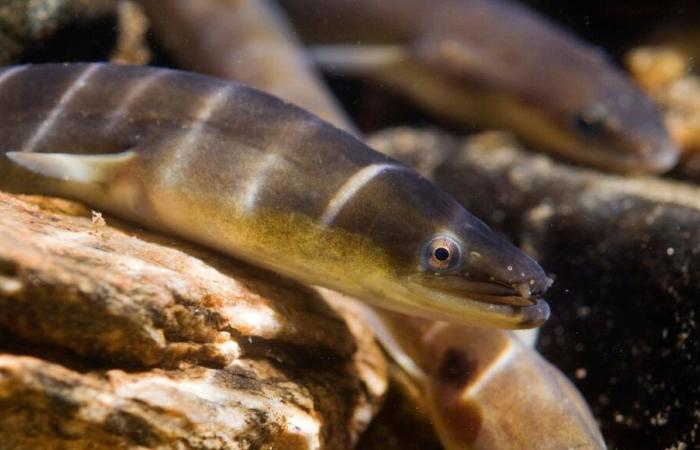The eel, a fish subject to many desires, is at the heart of the concerns of the fishermen of the 2 Charentes to whom Bruno Garcia, the fishing specialist from France Bleu la Rochelle, responds here in “Au fil de l'eau”
Bruno Garcia, Mr. Fishing from France Bleu la Rochelle, responds today to Maurice who lives in Charron in the north of the Charente-Maritime department. He has had a fishing license for many decades and is increasingly questioning the usefulness of fishing federations, particularly on the subject of eels. Are there any real steps taken to denounce excessive harvesting of this species by professional fishermen? To summarize Maurice's point, is the Fishing Federation rebelling?
Bruno Garcia : Although this question is somewhat aggressive, it will be very useful in informing the general public of what is actually being done. Above all, this response will allow us to get the message across to our members who, it is true, are often unaware of the colossal work that is being done on this subject. Know Maurice that we do not sit idly by waiting for certain situations that we consider to be inconsistent to improve on their own. We move, we campaign, we express ourselves and we appeal for justice when we consider that the solution of dialogue and negotiation is now without much hope.
This is regularly a subject that angers the eel. This is not the first time that people have written to us with this type of grievance.
An angry subject for more than 15 years now: the eel and its fry, the glass eel in particular. France, or more precisely our political decision-makers, continue to authorize the fishing of glass eels, fry of the European eel, in proportions which go against the scientific advice expressed for more than 15 years. The eel is listed in the red book of threatened species and despite this we continue to authorize the collection of 65 tonnes of glass eels for the 2024 – 2025 season. Quotas which are incompatible with the survival of the species.
So you said it straight away, it could go as far as initiating legal proceedings?
We could be the only ones who think like that. In which case we might ask ourselves questions and think that we might be wrong. We are not isolated and we are associated with numerous environmental protection structures with which the Departmental Federation of Charente-Maritime has already contacted the Council of State to denounce these fishing quotas which are dangerous for the eel species. Even the International Council for the Exploration of the Sea recommends leaving the species alone.
Indeed, when an International Council speaks, it requires a minimum of attention.
It recommends reducing to zero any impact of human activity on this stage, the State continues to set quotas in total contradiction with scientific recommendations: 65 tonnes of glass eels can be caught this year, or 185 billion glass eels!
What can explain such a position of the State?
The arbitration carried out by the State seems to be in favor of economic interests carried by professional fishermen, however this is only a short-term vision. Only preservation of the species will ensure the sustainability of the jobs that depend on it in this sector. Faced with this situation, our associations have long challenged the various Ministers of the Sea and Ecological Transition. Their silence therefore forced us to take legal action so that European regulations requiring the reconstitution of the stock could finally be taken into account. And, I would add that the Charente-Maritime Fishing Federation regularly becomes a civil party in the event of offenses relating to the eel species. I will close by emphasizing the fact that if the associative structures for fishing did not exist, whether local or departmental, the fish in the waterways would not have survived.
France






